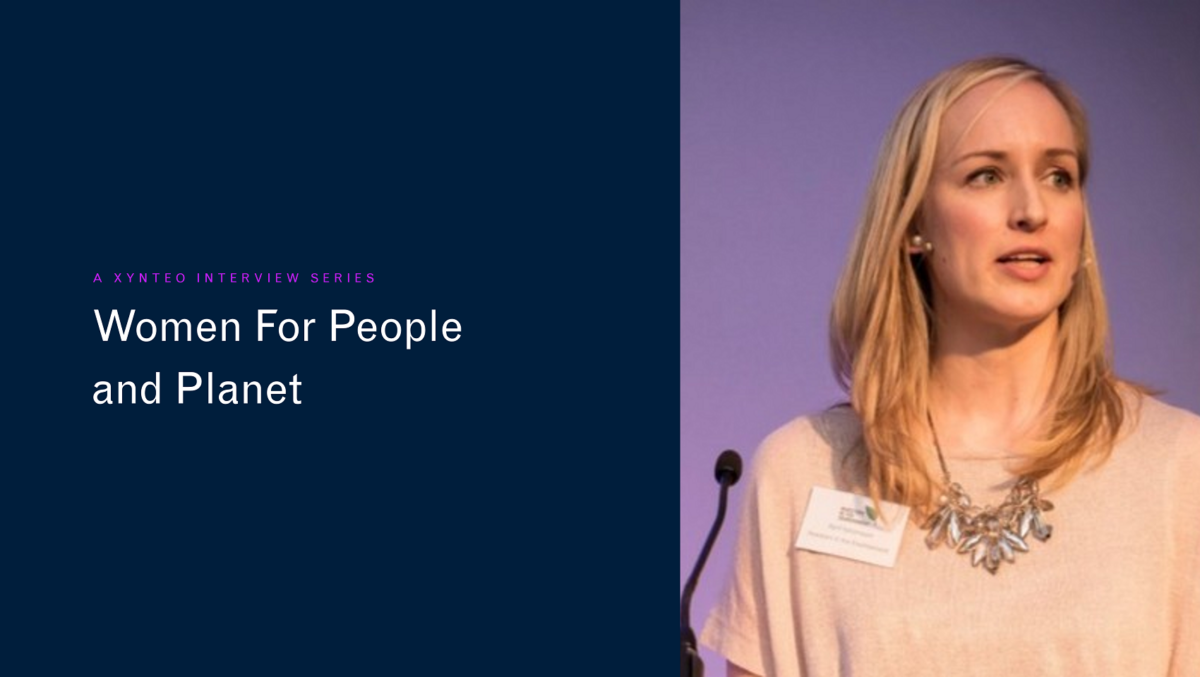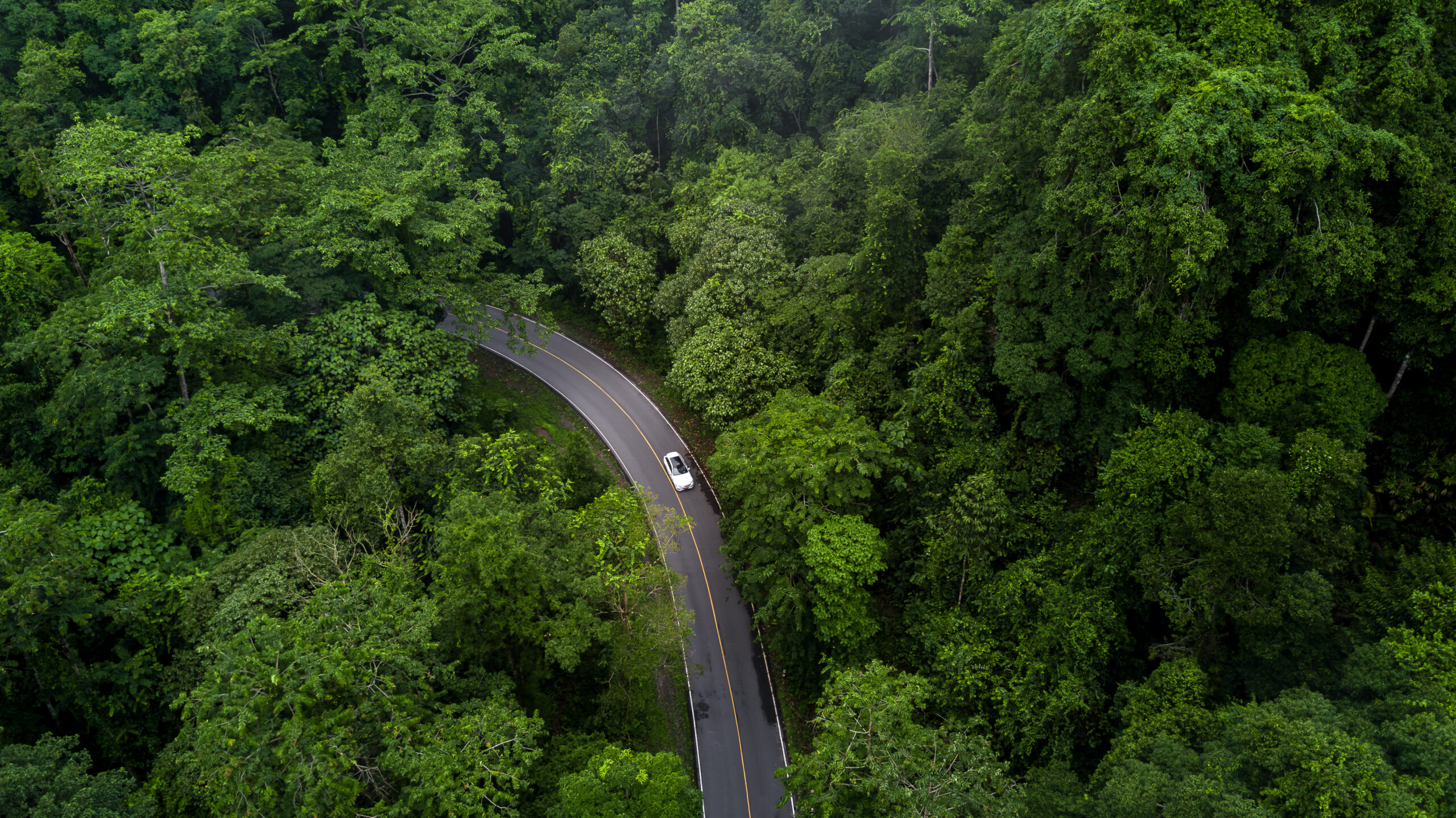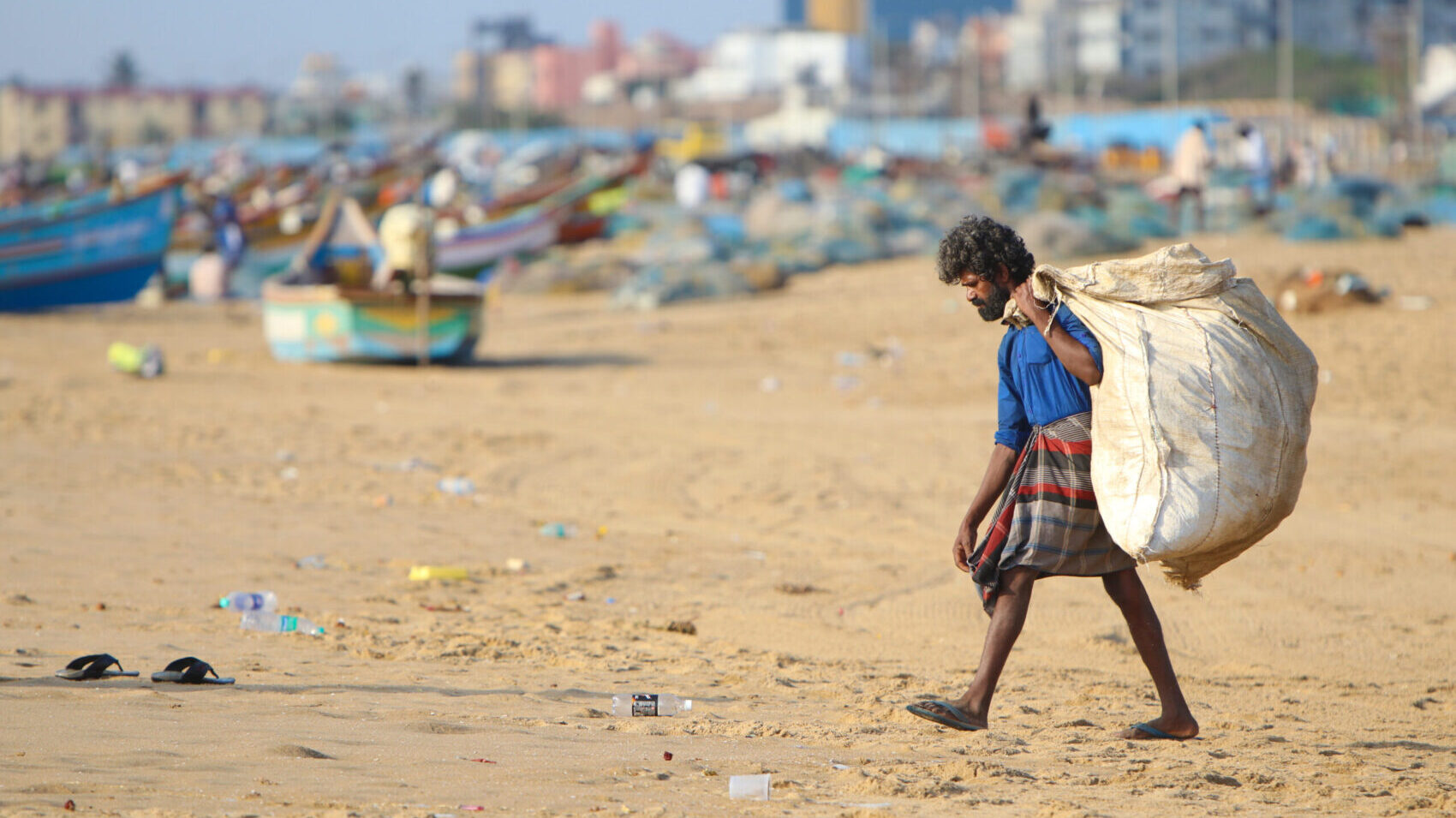A former military woman, and an environmentalist. April Sotomayor has worn several hats, but always preferred the green one. In a career that taught her to take risks, start small and peg away at whatever she did the best way she knew—April has worked tirelessly to create grassroots impact and set sustainability standards.
Xynteo’s Sally Gray sat down with April to talk about her journey, what she has learnt, and how she sees the future of sustainability in the corporate world.
What does your personal journey towards sustainability look like?
April: I’d say it was quite organic, because when I started my career, I was in a totally different field. When I left school, I joined the military and worked in the intelligence field for five years. But in school, I was most passionate about biology, particularly zoology. And I knew that I wanted to use the experiences that I had in the military in another way, and go back to what I loved and was passionate about, and so after the military, I studied biology.
En route to making this transition, I volunteered for a local water quality programme in the US. I got a lot of interesting and unexpected experience there because I was working with people who were not environmental scientists–they came from different backgrounds. Through our group leader, and eventually my first mentor in the environment sector, I learned how to more directly understand the impacts of strikingly common sources of pollution. My mentor himself did something very different for a living – he was a very senior neuroscientist who was doing this stuff on the side just as a passion project. And he was so inspiring. One of the projects that he was running with grad students was to track the amount of mercury that was coming out of a local plant that was producing chlorine. The plant was discharging effluent filled with mercury and they were grossly exceeding their environmental permit. This was discovered through just ordinary citizens doing citizen science.
That experience had a powerful effect on me: I learned that ordinary people could directly stop quite bad things from happening to the environment. Though I was ultimately interested in wildlife and nature, my interest changed from field work to how environmental management could turn off the tap of pollution at its source.
When I moved to the UK, it was really difficult to get into a sustainability role with my limited experience – bearing in mind I had just left behind a career in a totally different field and now only had academic and voluntary experience for the kind of environmental work I wanted to do. So after several failed attempts at getting a related role, I studied for a Masters degree in environmental management. This really helped me to work from the ground up, beginning as an environmental project offer to eventually a sustainability consultant working directly with companies to understand their impact and do something tangible about it.
After almost 10 years working as a sustainability consultant, with a focus on environmental management system certification, programme development, and training across a variety of sectors, I became aware of the BAFTA Albert programme. I was really curious about its certification scheme and amazed by its incredible traction across the whole sector. Certifications can be a driver for engagement and uptake of specific environmental achievements, and that was really what peaked my initial interest.
With BAFTA Albert, certification is only one aspect of our work to empower others—from training and education, supply chain engagement, and decarbonisation projects that could support the whole sector.
I have had a very meandering path, but every experience built on the last.
What are the skills and experiences that you’ve valued the most on this journey and have equipped you best?
April: Hard work and just focusing on doing your best work regardless of whatever level you’re at.
I think early on in my career I was quite frustrated because I had gotten relatively senior within a short period of time when I was working in intelligence, and that was difficult to let go. And I had to start over at the beginning again – new industry, new country, new network. I told myself, okay, just roll up your sleeves, focus on doing the best that you can and do not be afraid to start anywhere. The military gave me excellent experience with leadership, managing complexity and uncertainty, and being outcome focused. The intelligence specialism helped me to learn how to apply critical thinking and analytical skills in different scenarios. I also really valued the experience of coaching. I had a coach for about a year and who helped me see that my skills and behaviours are really part of a mindset. Work ethic and a growth mindset have seen me through probably more than any specific technical skill that I’ve had, because you can acquire those.
As an already quite reflective person, I was unsure about how having a coach could help me but the experience allowed me to see really different perspectives on opportunities, notice my blindspots, and have more courage to change my trajectory.
Once I acquired sustainability skills and deeper experience, I sought out more business skills – embedding sustainability decision-making into business management is absolutely critical to developing the sustainable economy we need. I did an agile MBA course over 14 months, and I was able to immediately use and apply some of those skills in lots of different ways, from communication to more technical business development skills. I had been learning it organically, but I realised there were frameworks and techniques that would save me a lot of time and fill in some important gaps – such as finance and marketing.
What opportunities have been the most important to making progress in your sustainability journey?
April: Seizing the chance to develop teams and people that you’re working with — empowering others is the biggest opportunity for growth, and it massively aligns with my own values. It’s something that you can get the biggest impact from and the most satisfaction if you can help others to thrive.
You can try to do a lot of things yourself, but I think if you recognise the opportunity to empower people and be quite strategic about how you do that, you can scale your individual impact even within a small team, by thinking creatively and differently.
And that is something I really love about working at BAFTA—it’s the network that we have and the culture of collaboration. It’s unlike anything else I’ve ever experienced.
Seizing the chance to develop teams and people that you’re working – empowering others – is the biggest opportunity for growth, and it massively aligns with my own values.
What barriers have you faced?
April: The biggest barrier for me initially was starting over in a new country in a new career as a woman and then as a mother. Also, trying to figure out how I grow and achieve my goals with a lot of things going against me.
I’ve had several moments in my working life where my own mindset held me back. I had probably been holding myself back from trying things because I didn’t think they would work, or I thought it would disadvantage my family if I spent more time on certain things, or not wanting to take a job in London because I thought I’d be commuting too much.
My coach said just try it, it doesn’t mean you’re committing. Just see what it might feel like. And these tiny baby steps really helped me. I realised a lot of excuses were holding me back.
What has been your proudest impact moment?
April: Probably my proudest impact is some sector-based work that created a legacy far beyond me. I have worked with a lot of different organisations and businesses, but one of the most significant ripple effects that I’ve had as an individual was while working with the veterinary sector.
That started about five years ago—I was working with a veterinary hospital, specifically around environmental management and seeking certification for their EMS. I was collaborating with a few veterinary surgeons and that ended up just ballooning out to us co-identifying other key stakeholders within the sector, and getting the opportunity to affect a sector-based change, which is similar to what we’ve got in the film and TV industry. But this was more of a grassroots demand for industry change. In 2019 I presented to their Royal College—at that point, we were advocating for a climate emergency declaration, embedding sustainability within core industry standards, and that it should be cascaded to all hospitals and practices across the UK and maybe beyond. And that legacy bore fruit.
After several years of robust supportive work with many others in the sector, that seed blossomed into new industry sustainability standards, and now there are huge sector-based initiatives providing guidance alongside core requirements to practices within the UK.
How do you see the future of the CSO role/sustainability teams in the boardroom?
April: The CSO and other senior sustainability roles have the challenge of supporting the transition of the business to a sustainable business model – not just doing less harm but having a net positive impact on the environment and society – as much as economic benefit. This is a really difficult shift to make, and these roles face considerable headwinds with the status quo still prevailing – but pressure is growing to support this work, more and faster than ever before. These roles will continue to grow in number, and the future of this role is likely to be greater reskilling of more senior leaders with sustainability competencies. I think that a crucial function of this role will also be to advance the integration of sustainability KPIs across all roles and continue to be that senior champion of progress internally and externally.
If you had one piece of advice to anyone reading this, what would it be?
April: Make a start wherever you are. If you want to make an impact, you can make an impact in what you’re doing right now.If you want to make a change and have a role that’s primarily focused on sustainability, go for it! Keep an open mind, and keep learning.
I was never sure about where taking the various courses and roles I took on would lead to. But I think just starting wherever you are, seeing what the opportunity could become, even if it’s as basic as starting a green team— that could be the foothold you can leverage to open that door a bit wider. So start with small achievable things, but really, keep your eye on the bigger prize and keep making progress.
To be inspired by all our latest interviews, visit our Women for People and Planet interview hub.
Stay up to date with our latest interviews by following us on social media (LinkedIn I Twitter), or Contact Us to find out how we can help your leaders and organisation create people and planet-positive impact.



